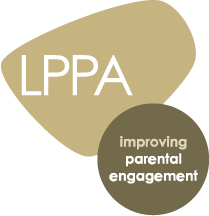Engaging parents can drive pupil progress, but what can schools do to overcome communication barriers?

It is well known that parental engagement impacts a child’s education, not just academically but emotionally and in terms of confidence too – their all-round development. The challenge for schools arises when there are problems in effectively engaging with parents.
Our 10th annual parental engagement conference saw chair for the day and director of Parent Councils UK Fiona Carnie begin her introduction by outlining some common barriers which decrease parental involvement:
The examples drew nods of acknowledgement around the room and highlighted the importance of the need for schools to identify the obstacles in communication so they can begin to understand how to overcome them. Fiona moved on to talk about other barriers that can come from within schools.
Kate Greig, headteacher at King Ethelbert School in Thanet, Kent, shared an inspiring case study on how her school successfully reached parents with negative experiences of their schooling and the strategies used by the school to turn their perceptions around. Kate’s session emphasised what became a common theme running through the day; how vital it is to engage parents early and set school expectations of them.
A school culture where parents feel part of the school will lead to whole school improvement.
A panel discussion involving Kate, Alan Brookes, headteacher of Fulston Manor School and Mario Lopez-Goicoechea, extended schools leader, parent support adviser and parent college manager at Honilands Primary School, focused on overcoming cultural barriers to sustain continuous engagement.
Answering questions from attendees, the panel covered areas such as EAL, families newly arrived in Britain and using cultural differences as a tool to enrich the education of pupils by broadening their outlooks.
The discussion was complemented and built on by Diane Leedham, writer, teacher and consultant for EAL and equality and diversity in her session on overcoming language barriers with EAL families. Diane gave lots of useful advice on building partnerships and specific examples to overcome communication barriers such as bilingual welcome booklets and inviting parents into school for bilingual activities such as storytelling or a musical evening.
It’s important to think of cultural differences as opposed to cultural barriers.
These and other communication barriers were further explored throughout the day in a series of streamed sessions and discussions to help develop strong relationships and work in partnership with parents to improve pupil outcomes.
An array of issues such as making a positive impression when initially contacting parents, holding difficult conversations and working effectively with parents to improve literacy and drive pupil progress were covered by a great mix of school case studies from headteachers and speakers from the Parental Engagement Network (PEN). Emma Beresford, director of PEN, gave examples of the work they carry out in engaging parents with literacy, such as creating reading workshops for the families as well as pupils, and discussed how schools can embed this work in a way that can be measured and evaluated.
I spoke to many attendees at the conference and felt inspired to hear positive stories of how schools had successfully engaged parents and the impact it had both on the education of pupils and on school improvement. I came away with some very clear thoughts that were echoed throughout the sessions and by schools themselves:
‘Parental engagement is the most powerful lever of school improvement’, Fiona said. After hearing from those at the conference, speakers and schools, it’s hard not to agree.
 Accrediting partnerships
Accrediting partnershipsThe Leading Parent Partnership Award gives schools a coherent framework to deliver effective parental engagement from early years to post-16.
To find out more, visit the AwardPlace website.